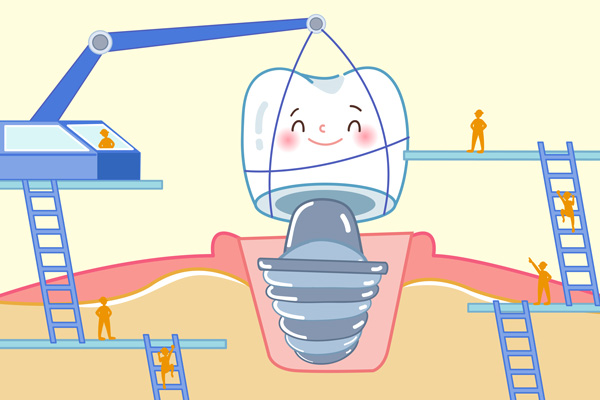Dental Implants Are a Long-lasting Replacement for Missing Teeth

When your dentist recommends that you get dental implants to replace missing teeth, you may be wondering how long these implants will last. The good news is that with the proper care, you can expect dental implants to last a lifetime. Flossing, brushing and visiting the dentist can help your implants and mouth stay healthy. Read on to learn more about dental implants and the right way to care for them.
Parts of a dental implant
Understanding more about a dental implant can help a patient understand why the implant can last for so long. The implant is made up of three main parts:
- Base: this part of the dental implant is the part that the dentist attaches to the jawbone. The dentist will drill a hole in the patient’s jaw, place the base and wait for the bone to fuse around the base. This allows the implant to be strong and to withstand strong force
- Abutment: the abutment is what connects the base and the implant. Once the patient’s gum has healed from getting the base, the dentist will attach the abutment to the base
- Crown: like with a natural tooth, the crown is the part of the dental implant that the patient is able to see. The dentist will attach the crown to the abutment. Then the dental implant will be complete. The crown is made out of a ceramic material and it will be custom-designed to look like the rest of the surrounding teeth in the patient’s mouth
Because the crown is the part that is most exposed, it gets the most wear and tear. The crown can last at least 25 years with the right care and maintenance. The good news is that the crown is generally less painful to replace than the base. However, the base will last for even longer than the crown.
Caring for dental implants
The right oral care practices are necessary in order to extend the life of the dental implant. Patients should brush the implant at least twice a day with the rest of the teeth using a soft toothbrush. It is important to brush the crown, around the crown and underneath it.
Patients should also floss at least once a day. An interdental floss that is coated in nylon can help patients floss in difficult areas. A dentist may also recommend floss that is made especially for patients to use with dental implants. A water flosser can help patients remove bits of food from underneath the implant.
Visit a dentist today
If you have missing teeth, then you may want to consider getting a dental implant. The base of the implant is permanent. The rest of the implant can also last a lifetime with the right care. Brushing your teeth regularly, flossing and visiting the dentist often can all help you keep your implants and mouth healthy. Visit a dentist today for more information about dental implants.
Request an appointment here: https://artisandentalbellevue.com or call Artisan Dental at (425) 454-2005 for an appointment in our Bellevue office.
Check out what others are saying about our services on Google: Read our Google reviews.
Related Posts
Getting a smile makeover means getting at least one type of cosmetic dental treatment. You may want to improve your smile, but along with these treatments is the benefit of better oral health. Finding out more about this makeover can help you make informed decisions. Here are the details to consider about a smile makeover.The…
A smile makeover can be achieved with the help of one procedure or several. What a dentist recommends depends on the attributes of your smile you would like to change. To give you a better picture of some treatments that can transform a smile, take a look at these five popular treatments.Slight to moderate misalignments…
Considering a smile makeover and not sure where to start? Read on to learn more. Many people avoid smiling due to dental imperfections. A smile makeover may be the answer. A dentist can improve your smile with cosmetic procedures like teeth whitening, bonding, and veneers. The right professional for the treatment is the key to…
A smile makeover treatment can target dental stains and discoloration. Some of them affect the surface, while others penetrate the deeper layers of the mouth. A full evaluation can determine the right procedure to correct this cosmetic dental issue. Here are the common smile makeover options you should consider for your discolored or stained teeth.Despite…









